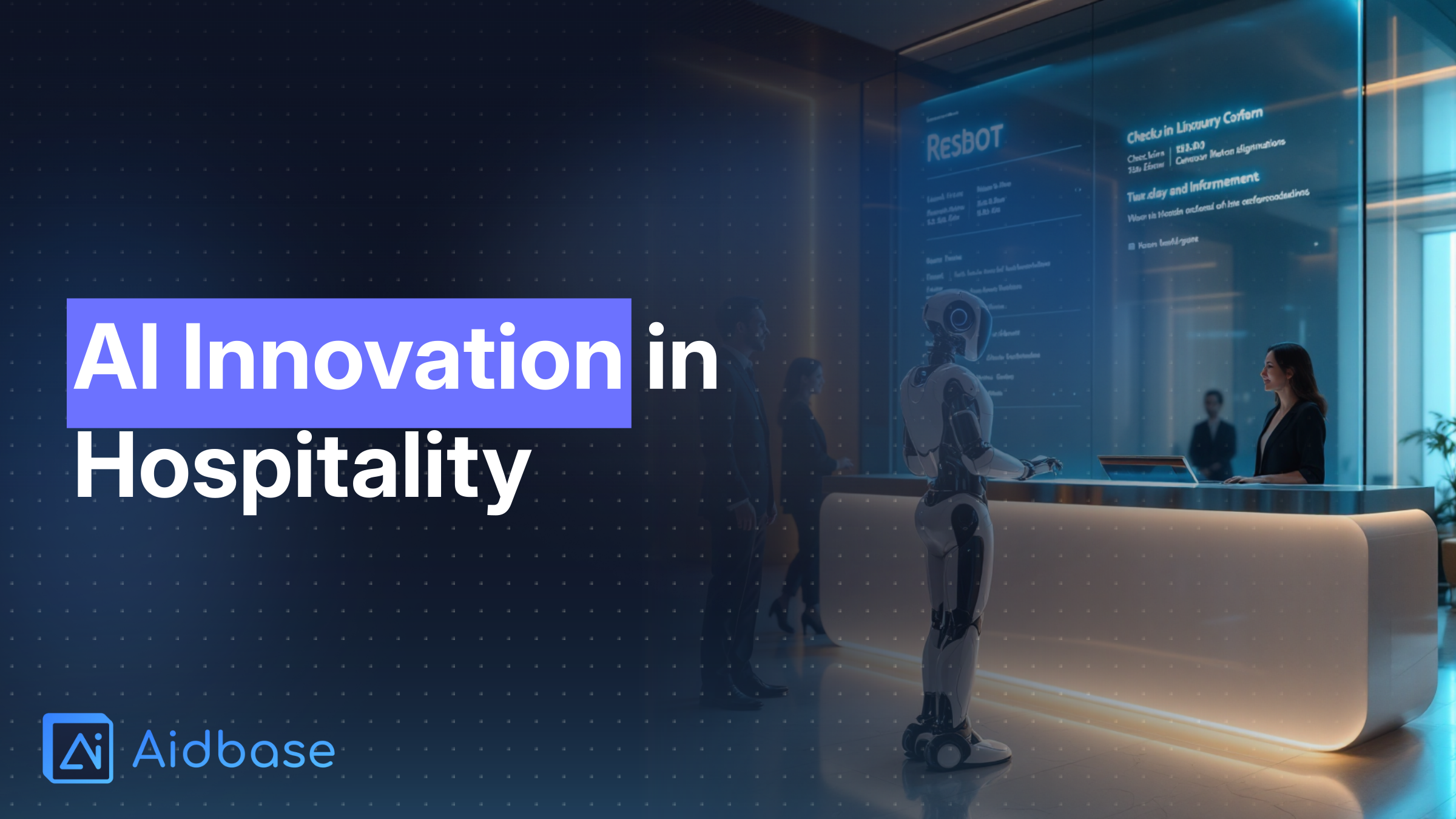Artificial intelligence is revolutionizing the hospitality industry by enha...

Artificial intelligence is reshaping the way hotels and resorts interact with guests and manage operations. From handling inquiries 24/7 with AI chatbots to personalizing guest experiences and automating routine tasks, the hospitality industry is entering a new era that benefits customers and staff alike.
AI adoption in the hospitality sector is not just about trendy tech—it’s a necessity for staying competitive in a fast-evolving market. Hotels are leveraging AI to streamline operations, reduce response times, and enhance the overall guest experience. The integration of smart technologies is leading to lower operational costs and improved guest satisfaction, making it a win-win for both guests and hospitality professionals. The transformation is backed by practical applications like AI-driven chatbots that provide immediate support and actionable insights, setting the stage for a future where technology and hospitality work hand in hand.
AI-driven chatbots are at the forefront of enhancing customer support in hotels. These solutions work around the clock, responding to guest inquiries in multiple languages and offering personalized recommendations. For instance, Hilton’s chatbot Xiao Xi has managed to address over 50,000 customer queries with a 94% satisfaction rating—a clear indicator of how effective and reliable these digital assistants are. Similarly, Marriott International employs a chatbot known as "MC" that not only assists with bookings but also highlights local attractions, leading to a significant return visitor rate of 60%.
Key benefits of AI chatbots include:
Integrating tools like these can substantially reduce response times—a crucial factor in keeping guests satisfied and engaged. For those exploring AI support tools, Aidbase offers robust solutions tailored to elevate customer interactions.
Today's guests expect more than a generic service; they desire personalized experiences that cater to their specific needs and preferences. AI is enabling hotels to curate tailored recommendations—from dining preferences and spa bookings to local excursion suggestions—by analyzing guest data and behavior patterns. By using machine learning algorithms, hotels can predict guest needs even before they articulate them, leading to a smoother and more enjoyable stay.
Some ways AI is personalizing guest experiences include:
This approach not only enhances guest comfort but also builds loyalty, ensuring that guests return for future stays. When coupled with AI support tools like Aidbase, the transition to a personalized service model becomes even more seamless and efficient.
Beyond guest-facing applications, AI is revolutionizing back-end operations. Routine tasks such as check-ins, booking confirmations, and even room service requests can be automated to enhance efficiency. Automation minimizes human error and significantly speeds up processes. For example, Radisson Blu Edwardian’s chatbot “Edward” has processed over 28,000 guest interactions, reducing response times to an average of just 2 minutes. This efficiency not only improves guest satisfaction but also allows hotel staff to focus on more complex and personalized services.
Key impacts of operational automation in hospitality are:
This streamlined operation is vital in high-demand periods and can prevent service bottlenecks that might otherwise frustrate guests.
Real-world examples highlight how AI is making a tangible difference in hospitality. Consider these success stories:
Marriott International: Their implementation of AI chatbots across various platforms has resulted in thousands of daily processed requests in over 15 languages. This initiative has garnered guest satisfaction rates of up to 85% for AI-handled interactions, demonstrating that technology can significantly enhance service quality.
Hilton Worldwide: Hilton’s “Connie”—powered by IBM Watson—acts as an AI concierge that helps guests by answering inquiries about hotels and suggesting nearby attractions. The introduction of Connie has led to increased overall guest satisfaction, proving that AI can effectively complement traditional customer service channels.
These case studies confirm that AI not only meets current customer expectations but also sets the groundwork for more advanced, tech-driven guest services in the future.
The future of AI in the hospitality industry promises even more innovation. With advancements in natural language processing and machine learning, we can expect AI systems to become even more intuitive and adaptive. Upcoming trends include:
While these innovations promise efficiency and a higher quality of service, they also raise concerns about job displacement and labor dynamics. For example, as showcased in reports discussing AI advancements—such as the concerns around AI automation in other industries like hospitality and retail (see this AP article on AI innovations and industry concerns)—there is an ongoing dialogue about balancing technology with human roles. The industry must carefully weigh these factors to ensure technology augments human talent rather than replaces it.
In summary, AI-powered customer support is transforming the hospitality landscape by enhancing guest experiences and driving operational efficiencies. From the immediate responsiveness of AI chatbots to the deep personalization of guest services and the streamlined automation of routine tasks, these technologies are proving to be indispensable tools for modern hotels. Embracing these advanced systems not only positions establishments at the forefront of innovation but also ensures that guest satisfaction remains a top priority.
As we look ahead, the thoughtful integration of AI will continue to unlock new possibilities, making hospitality more efficient, responsive, and guest-centric. With a balanced approach to technology and human touch, the hospitality industry is well-equipped to meet the evolving demands of today’s travelers.